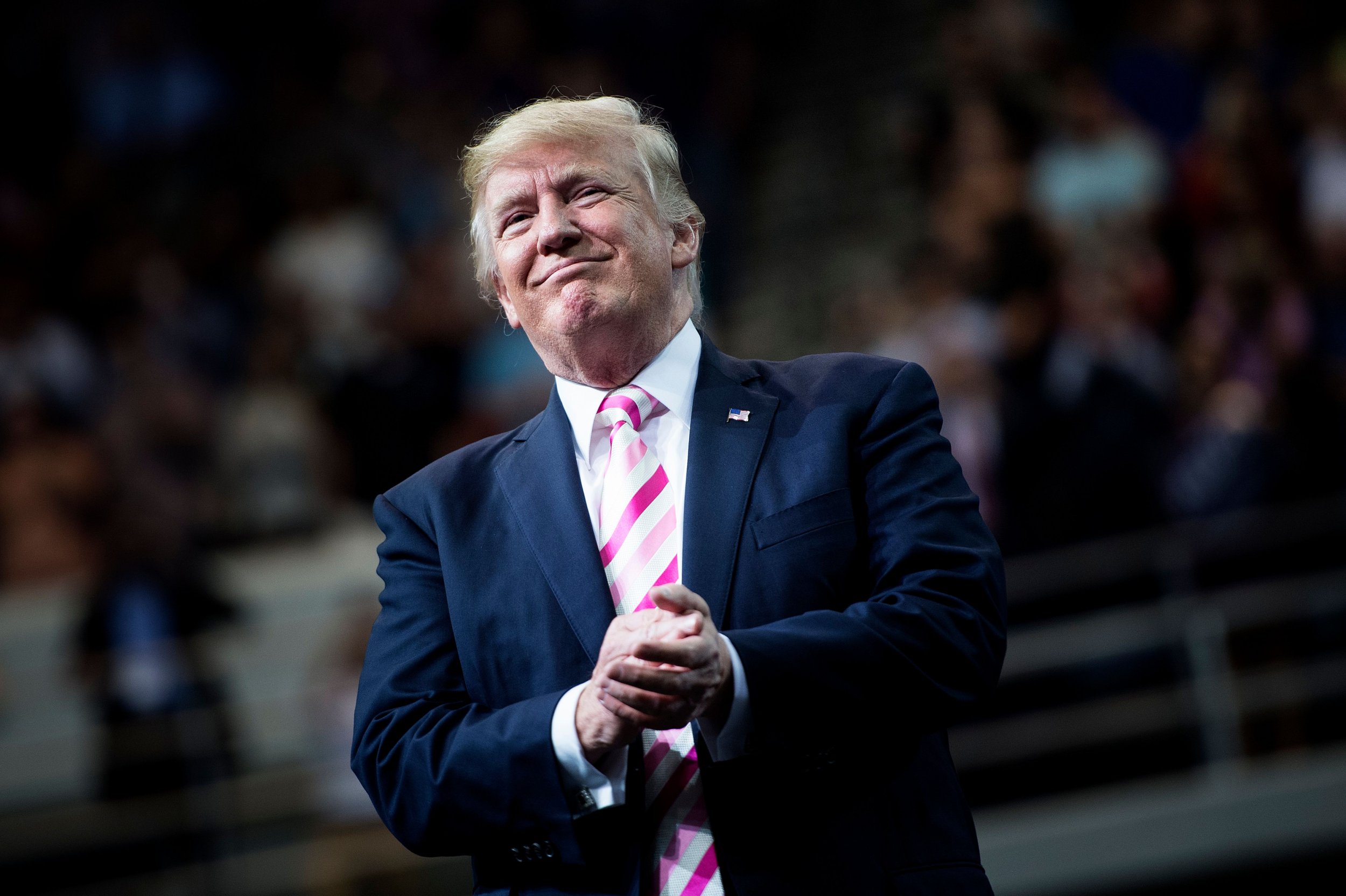
We still don't know what form President Donald Trump's "Fake News Awards" will take when he hands them out on Wednesday, but it's probably a safe bet to say the host will revel in it.
More than anything, Trump sees his presidency through the lens of reality TV, with him as its star and all the rest of us as potential contestants to be voted off the island in staged elimination ceremonies of his own making. As others have reported, Trump seems to watch his own presidency unfold on television as though it were a show produced without his participation. When things don't go his way in the show's narrative, his instinct is to interrupt it using tools typically favored by disgruntled characters on Bravo's Real Housewives franchise (Twitter rants, name calling, staged events, accusations of rigging and biased editing, deception and toothless threats of lawsuits) rather than traditional forms of media relations or rhetoric preferred by modern U.S. presidents.
The Fake News Awards, those going to the most corrupt & biased of the Mainstream Media, will be presented to the losers on Wednesday, January 17th, rather than this coming Monday. The interest in, and importance of, these awards is far greater than anyone could have anticipated!
— Donald J. Trump (@realDonaldTrump) January 7, 2018
While some might point to all of this as a sign that Trump is having difficulty letting go of his role as a television producer and celebrity, I would argue that there is simply no other role that Trump is capable of playing. He will never grow, learn or mature into the role of president. He will remain exactly what we, as audiences and tabloid readers encouraged him to be for decades: the archetype of the volatile and self-obsessed reality TV star, but now with an authoritarian twist.
Reality TV rewards personalities built through self-branding. Some of the genre's most consistently popular characters are those, like the Kardashians, who remake themselves (through surgery, consumption, self-help) to fit a rather bland ideal of cultural and economic entrepreneurialism. Other personalities, like Trump, add disruption to this model, presenting a personal brand dependent on being a fighter, an outsider and a rule-breaker. These characters (think Danielle Staub of Real Housewives of New Jersey) work to constantly thwart the efforts of smooth narrative progression. They interrupt, engage, scream, flip tables, pull hair and throw punches. They run on instinct, street smarts, emotional outbursts and adrenaline. They see everyone around them simply as winners or losers, and they will do whatever it takes to be on top.
In his role as host of The Apprentice, Trump cultivated and rewarded many of those traits in the show's favored contestants, like Omarosa Manigault-Newman, who voiced the oft-expressed phrase of the reality TV villain, " I'm not here to make friends. " And Trump, unable to relinquish his Apprentice days, hired Manigault-Newman as White House aide. (She left the White House in December after reportedly being fired, of all things.)
It is not outlandish to predict that outlets such as The New York Times, CNN and The Washington Post will be mocked at the "Fake News Awards" for similar traits as the losers on The Apprentice. Certainly, reliance on evidence, intellectual engagement, protocol and procedure is not something that Trump respects in reporting, business or in his own administration. Instead, these news organizations will wear the crown of "LOSER" because they, unlike Fox News, refuse to be complicit in Trump's production of the Trump-as-president reality show.
Of course, the very same traits that make the volatile reality TV disrupter so compelling to watch when her machinations are confined to entertainment, and the stakes are limited to the personal, become deeply dangerous when embodied by the president of the United States. In fact, in this context, these traits transform into those of authoritarianism. They are a threat to the First Amendment, to national security, to our institutions, our environment and our people. The playful testing of boundaries between real and fiction, which undergird the pleasure of watching reality television, has now become one of the reliable tools (most commonly expressed as "fake news" accusations) used by dictators to undermine democracy.
It is time for Americans to wake up from the fugue state that our obsession with reality television and self-branding has put us in and to act as engaged citizens rather than passive viewers of the seemingly never-ending season of Trump's reality show.
Susan Murray is associate professor of media, culture and commmunication at New York University. She co-edited Reality TV: Remaking Television Culture (NYU Press, 2009) with Laurie Ouellette and is the author of the forthcoming Bright Signals: A History of Color Television .
Uncommon Knowledge
Newsweek is committed to challenging conventional wisdom and finding connections in the search for common ground.
Newsweek is committed to challenging conventional wisdom and finding connections in the search for common ground.
About the writer
To read how Newsweek uses AI as a newsroom tool, Click here.








